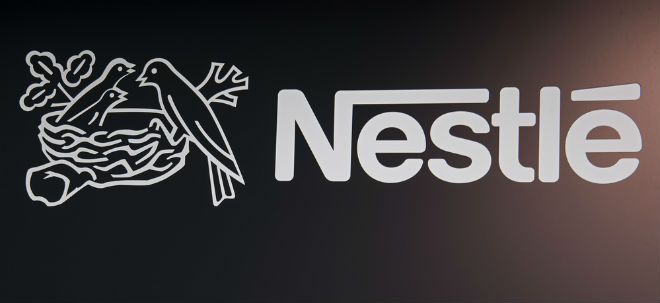Würde Celebrex, wie Pfizer-CEO McKinnell jetzt behauptet (unten), wieder alte Verkaufszahlen erreichen (das Loch bzw. die Fehlbeträge in den letzten Zahlen gingen u. a. auf rückläufige Celebrex-Umsätze zurück), gäbe es für die Aktie auch keinen Grund mehr, weiter nahe dem 8-Jahres-Tief zu dümpeln. McKinnell ist offenbar auch vom Ausgang des Entscheids gegen Mercks Vioxx (gleiche Produktklasse) ermutigt.
Pfizer CEO sees Celebrex rebound
Mon Nov 7, 2005 5:06 PM ET
NEW YORK (Reuters) - Pfizer Inc. Chief Executive Officer Hank McKinnell on Monday said he expects sales of the company's Celebrex arthritis drug to rebound to earlier levels, despite safety concerns that have decimated sales this year.
The New York-based drugmaker last month withdrew its earnings forecast for 2006 and 2007 and said it expects a modest decline in company revenue this year, amid tumbling sales of Celebrex and generic competition for other medicines.
"With (new) information now on the label and with additional clinical results that will be available over the next year or two, I don't doubt for a minute Celebrex will be a far bigger drug than it is today," McKinnell said.
When asked if Celebrex could return to far-higher earlier sales levels, he replied: "We certainly think so."
Sales of Celebrex plunged 44 percent to $446 million in the third-quarter. The drug was tarnished by being a member of the same class of drugs as Vioxx, the Merck & Co. pill that was withdrawn in September 2004 after being linked to heart attacks and strokes.
Celebrex has also been hurt by one of its own large clinical trials, detailed last December, in which it more than doubled the risk of heart attack among patients taking it to prevent polyps that can cause colon cancer.
McKinnell defended the drug's safety, however, saying heart risks were not seen in dozens of other Celebrex trials.
Company sales have also been hurt by generic competition for its Diflucan anti-fungal drug, epilepsy treatment Neurontin and Accupril for high blood pressure. Pfizer lost U.S. patent protection only days ago on antibiotic Zithromax and patents will lapse over the next two years on its depression drug Zoloft, hypertension drug Norvasc and Zytrec for allergies.
McKinnell declined to say when he will give new earnings forecasts for 2006 and 2007. But he said higher profit growth will hinge largely on rebounding sales of Celebrex and impotence drug Viagra, as well as a return to accustomed high sales growth for cholesterol fighter Lipitor.
Viagra should be helped, he said, by a return of direct-to-consumer ads that stopped late last year. He said the new ads will appear soon, with "a different look and different feels" than prior ads.
Lipitor should get a boost from new clinical trial data showing the drug's ability to reduce heart attacks and strokes among diabetics, McKinnell said.
McKinnell said Pfizer is counting on a number of experimental drugs to help drive profit growth in coming years, including Torcetrapib, which greatly raises the body's level of heart-protective HDL cholesterol. It is being tested in combination with Lipitor, which cuts levels of artery-clogging LDL cholesterol.
"It looks like a combination of raising HDL and lowering LDL cholesterol could have dramatic impact, maybe eliminating cardiovascular risk," McKinnell said. He described the combo pill as potentially one of the most important new heart medicines in decades.
McKinnell said Pfizer intends to seek marketing approval soon for Varenicline, a smoking-cessation drug he predicts will far outstrip GlaxoSmithKline Plc's Zyban in effectiveness.
"Our drug looks like it can take the quit rate up to 50 percent," McKinnell said, meaning that the percentage of smokers managed to quit smoking and stay off cigarettes a year after beginning the therapy.
McKinnell said Pfizer aims to continue buying drugs from other companies, but will not be greatly helped in doing so by an estimated $37 billion in overseas profits it is repatriating this year.
|
 1 |
... |
19 |
20 |
21 |
|
23 |
24 |
25 |
...
| 198
1 |
... |
19 |
20 |
21 |
|
23 |
24 |
25 |
...
| 198


 Thread abonnieren
Thread abonnieren

